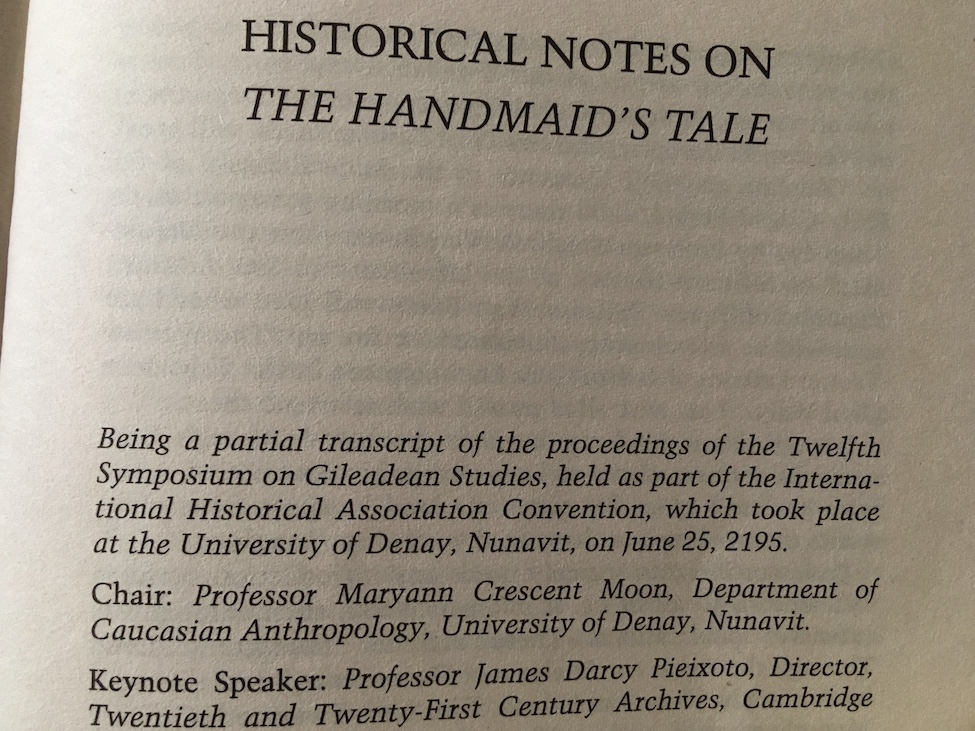I have always noted with interest the dedication and epigraph of a book – to whom if anyone – precise or otherwise (“To A.B.C. with love”!), sincere or ironic, inspirational or nonsensical. Sometimes they may mean nothing to anyone other than the author, but sometimes they are revealing (I think this is called paratextual).

My attention recently diverted to thinking about Puritans (who I have never thought much about before!), I recalled Margaret Atwood’s dedication of The Handmaid’s Tale to the historian Perry Miller (and Mary Webster – an Atwood ancestor and victim of the Salem witch trials!) who so impressed her whilst at Harvard in the early sixties.
Confounded somewhat about how those first Puritans could reemerge so diabolically in her Republic of Gilead (and at the same time dwell in the good spirit of a Reverend Ames in Marilynne Robinson’s novel), and fairly ignorant to colonial New England history, and absolutely to the theological dimensions, I have resolved therefore to pursue a little of my own research (over time!). And a starting point may well be at least some reading of Perry Miller’s The New England Mind: The Seventeenth Century. Quite how far I will get I don’t know; it does seem somewhat daunting!

I have wondered though about that “Historical Note” that bookended rather than framed Atwood’s novel, and I think I can see that this literary device may have been influenced by what she took from Miller all those years ago; something perhaps like history to be seen in continuity, as inherited over and over, and inextricably embellished all the way along with the set of beliefs of the historian and his or her time. Atwood characterises her (rather obnoxious) historian as one analysing the past from the physical and intellectual coordinates of his present; oblivious that all these 200 years on he is carrying all the baggage from those two centuries. For Miller I think that meant that the Puritanism of colonial New England had only previously been understood in evidential terms, rather than conceding that the history being told was affected by the America of the ensuing years and the present.
